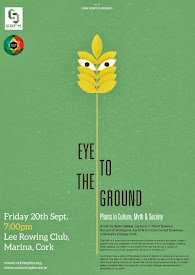University College Cork (UCC) today (February 19th 2010) became the first 3rd level educational institution in the world to be accredited with the prestigious international ‘Green Flag’ award.
The award, presented by Minister John Gormley, on behalf of An Taisce, to UCC President Dr Michael Murphy, is a direct result of the Green-Campus programme, a student-led initiative undertaken by UCC students and staff over the last 3 years.
The Green-Campus programme, operated in Ireland by An Taisce, has seen the University save €300,000 in waste management costs, reduce waste to landfill by nearly 400 tonnes and improve recycling from 21% to 60%. Furthermore, UCC has conserved almost enough water this year to fill the equivalent of the Lough of Cork.
"our first action was to put on overalls and dive into the skips"The first step was for the students to establish a Green-Campus Committee, in conjunction with the Buildings & Estates Department and academic staff. An environmental review followed. “There were absolutely no recycling facilities for students walking on the campus”, recalls Maria Kirrane, a student representative on the committee. “In fact, our very first action was to put on overalls and literally dive into the skips to see exactly what types of waste were being disposed of!”
In addition to staff recycling systems that previously existed, new recycling facilities for students are now available in front of the lecture halls, and in the canteens, where the staff is trained in minimising waste. Students in lecture theatres and laboratories are alerted to turn off lights and electrical equipment. College maintenance vehicles are now running on biodiesel. Carpooling has been introduced to facilitate lifts to and from campus. Enhanced Park & Ride and bike parking areas are designed to encourage more sustainable travel. Each year the Students Union holds a Green Awareness Week on campus, where real actions are supplemented by academic talks on environmental sustainability.
“It is quite a leap, transforming the Green-Schools programme, geared for the typical school of a few hundred students, to a complex campus of 130 acres, 16,000 students and almost 3,000 staff,” explained Dr Michael John O’Mahony of An Taisce. “In population terms UCC is bigger than your average Irish town, so bringing together all the necessary parties and practices to develop it into a sustainable Green-Campus was a real challenge.”
UCC President, Dr Michael Murphy said it is a source of great pride to the university, its staff and its students, that UCC has become the first third level institution in the world to be awarded the designation. “It is a wonderful achievement to have innovative thinkers among the staff and students in UCC all working towards the same objective.
“It was these students, who had been part of the Green Flag programme at secondary school level, who believed from the outset that the concept could be transferred successfully to an institution of UCC’s size and that by raising awareness throughout the university, we could, together, make a real difference.”
Mark Poland, Director of Building and Estates, added: “This initiative has provided a great forum for environmentally-conscious members of staff and students to assist in how we tackle our environmental responsibilities as a university community.”
An Taisce, on behalf of the Foundation for Environmental Education (FEE), granted the international accreditation after a rigorous assessment by an expert panel. UCC is now looking to build on the award. “We’d like to make it easier for students to cycle to college, possibly through a bike purchase scheme”, says Maria Kirrane. “Also, while UCC is a beautiful campus, many of the plants here are non-native. We’re looking to address biodiversity on campus.” In addition a programme to convert the college food waste into compost has commenced.
“There is a wide of range of environmental management programmes that a third level college could undertake. However, the Green Campus programme is unique because it is student-led and they are the key decision makers,” says Jan Eriksen, President of FEE. A number of other 3rd level institutions in Ireland will be applying for a Green-Flag shortly.
"it is critical that the chain not be broken"“This is about more than making a campus green”, continues Michael John. “Over the past 14 years, hundreds of thousands of students in Ireland have been brought up with Green-Schools, sometimes starting at pre-school, through primary schools and then second level. It is critical that the chain not be broken once they complete the Leaving Cert. It needs to continue into 3rd level, and from there into their professional as well as their personal lives so that they become life-long educators and ambassadors of sustainable living.”
























